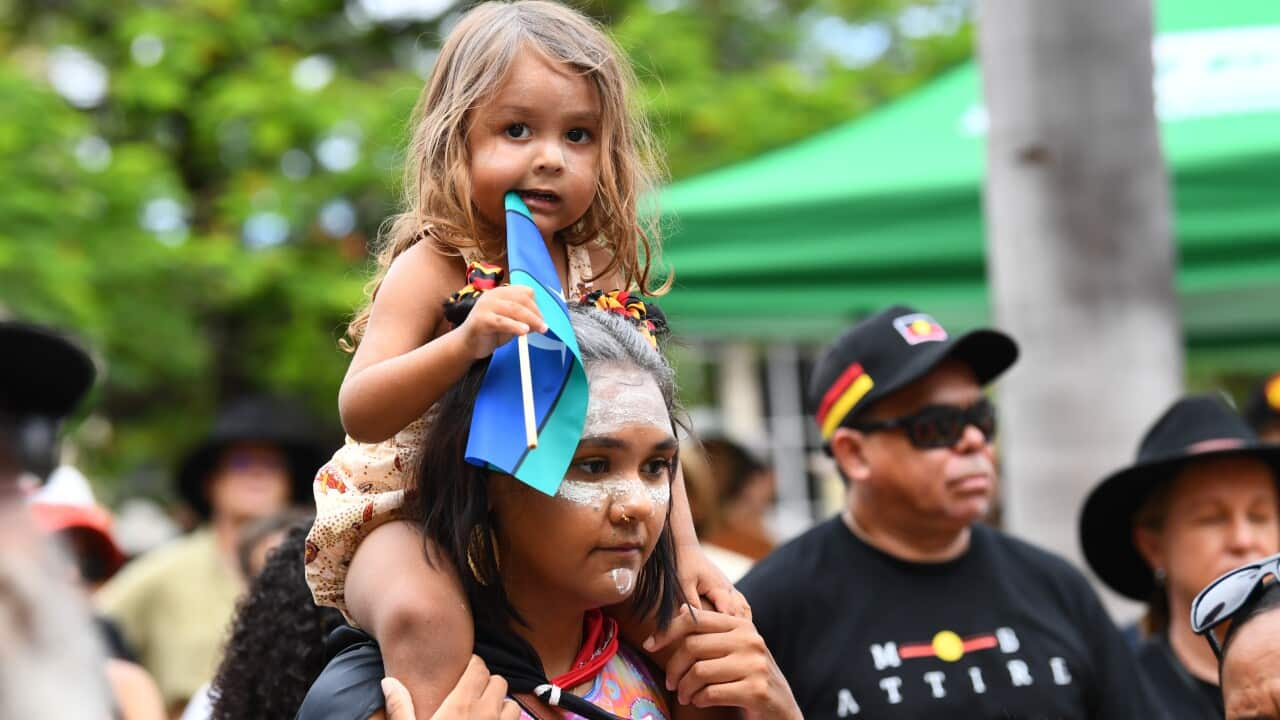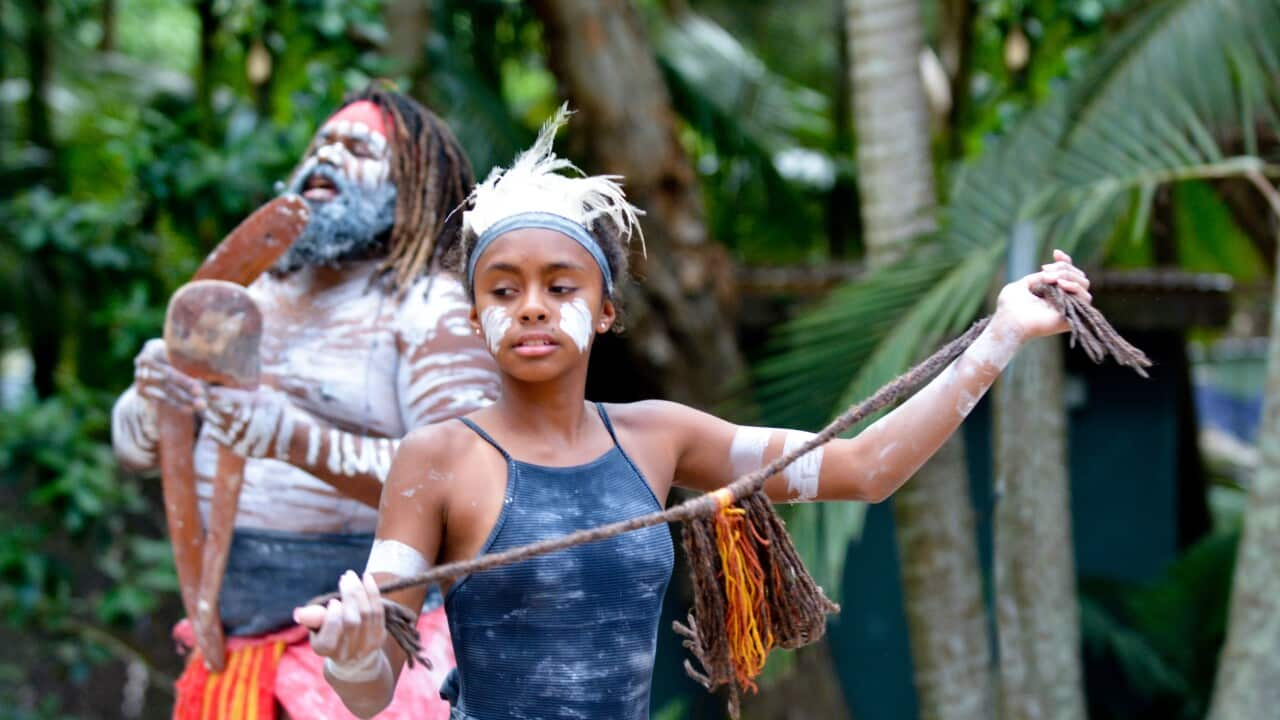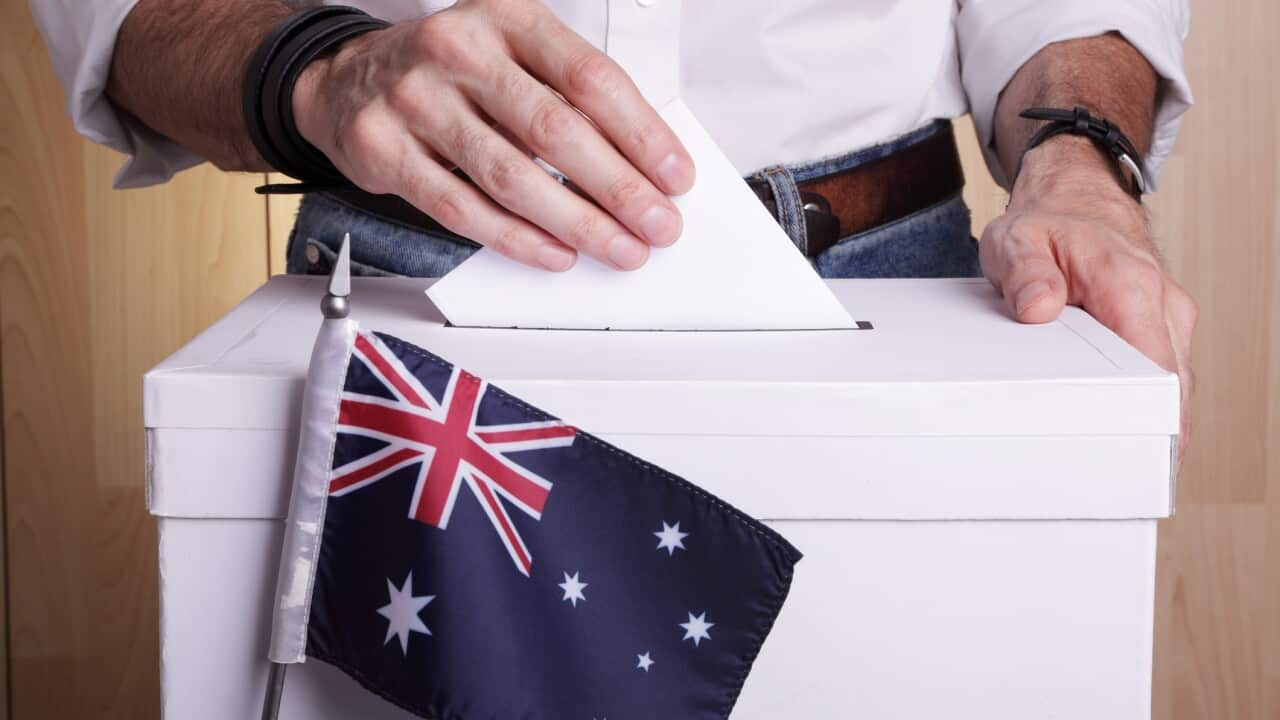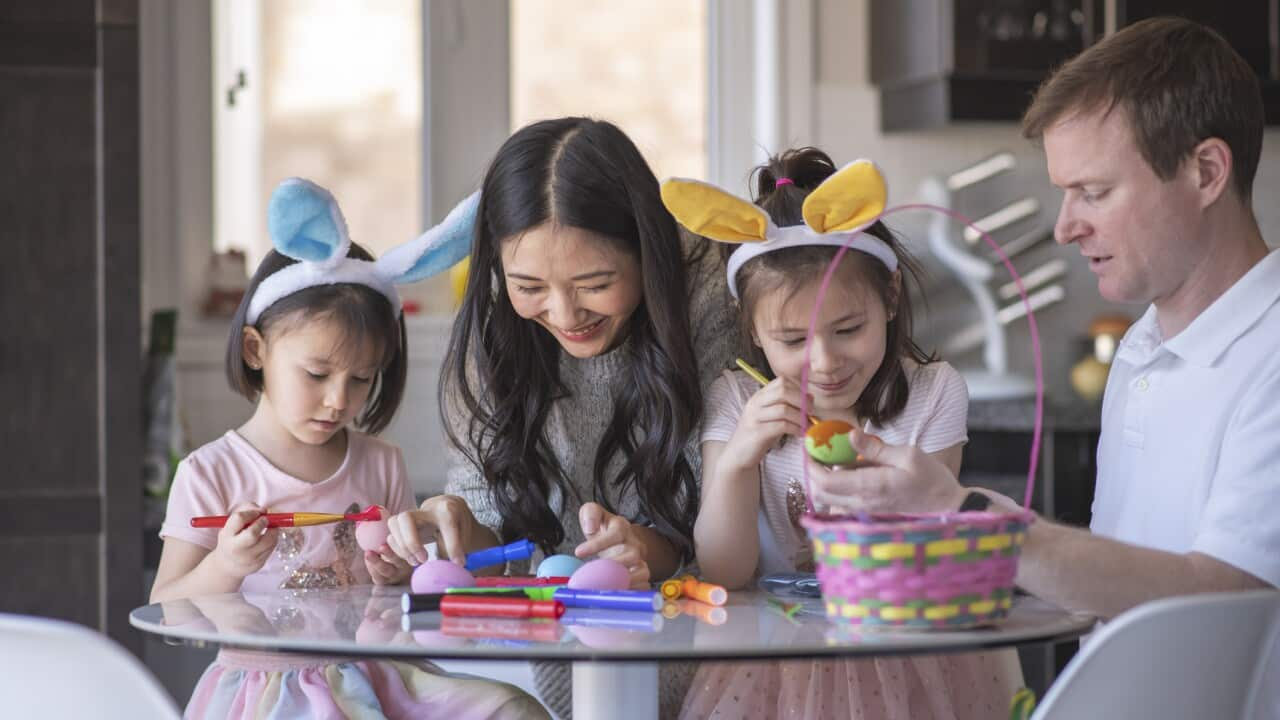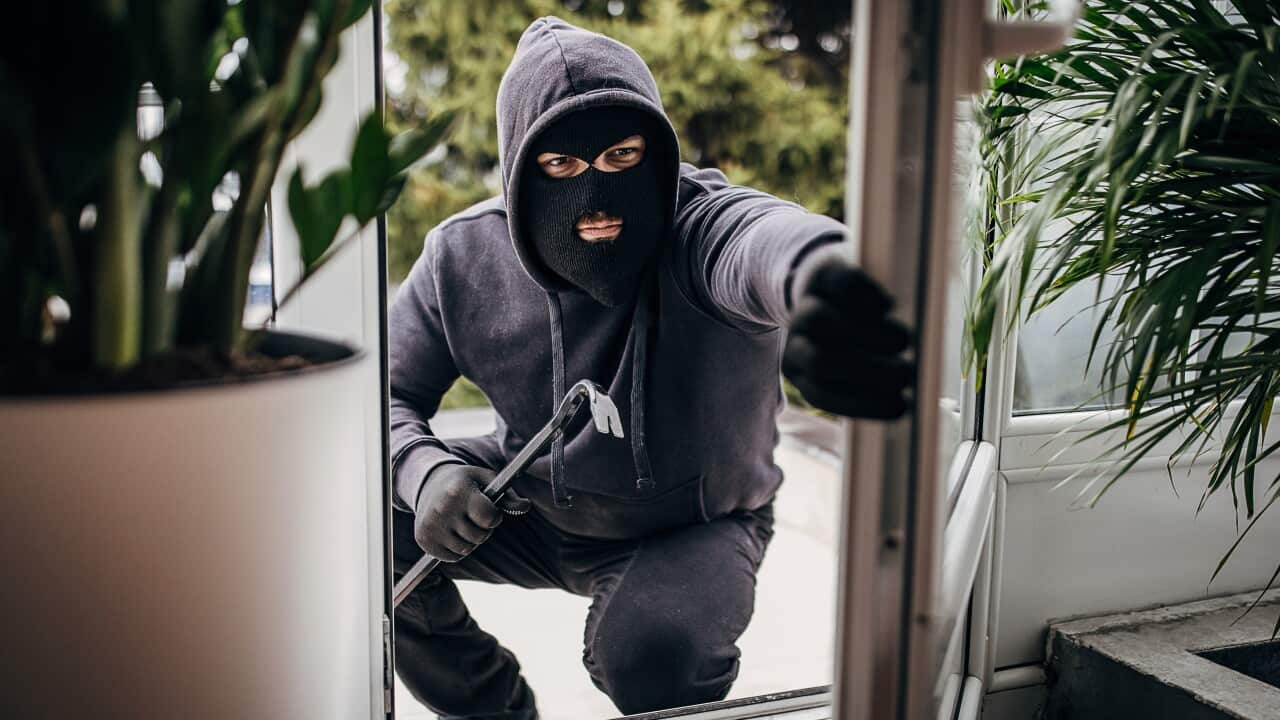ഓസ്ട്രേലിയയില് ജീവിക്കുമ്പോള് അറിഞ്ഞിരിക്കേണ്ട നിയമങ്ങളും, ജീവിതരീതികളും, ചരിത്രവുമൊക്കെ ലളിതമായ മലയാളത്തില് പങ്കുവയ്ക്കുന്ന പോഡ്കാസ്റ്റാണ് SBS മലയാളം ഓസ്ട്രേലിയന് വഴികാട്ടി. ഇത്തരം കൂടുതല് പോഡ്കാസ്റ്റുകള് ഇവിടെ കേള്ക്കാം:
READ MORE
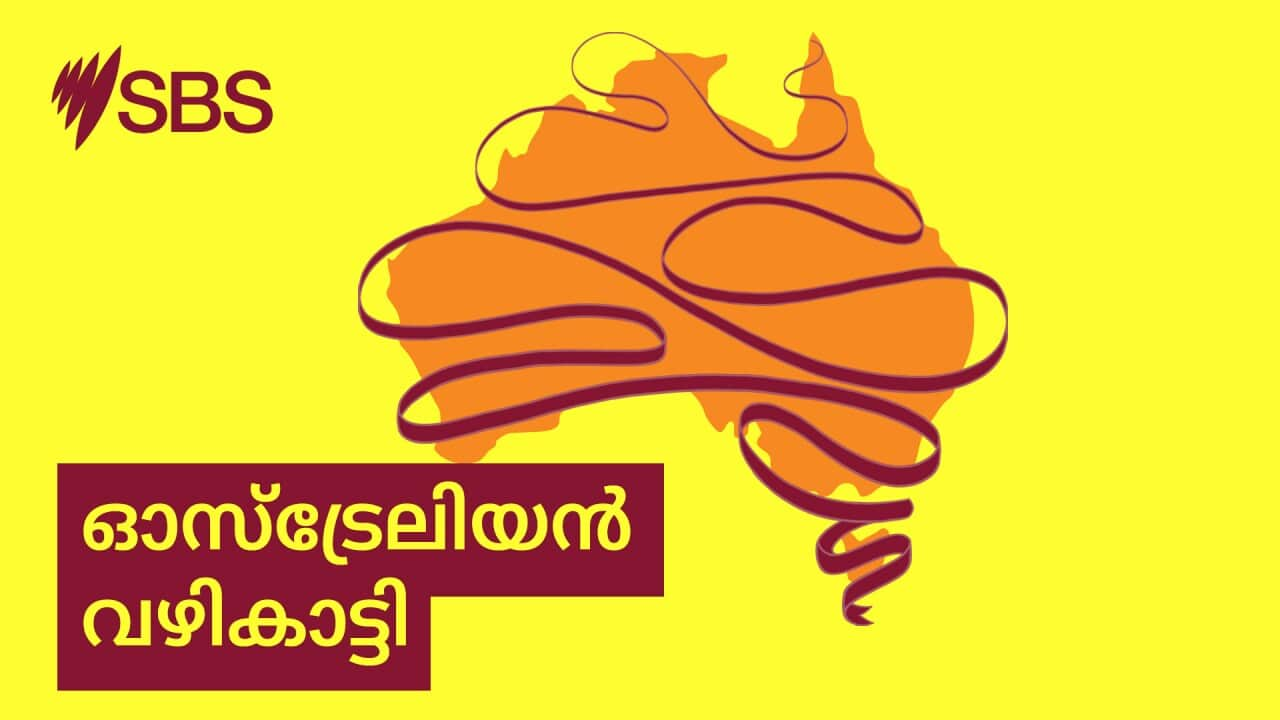
ഓസ്ട്രേലിയന് വഴികാട്ടി
Read this article in English:
What does January 26 mean to Indigenous Australians?
January 26 is officially Australia Day, the country's national day. But for Indigenous people, and an increasing number of Australians, this is not a day to celebrate.
Boe Spearim, a Gamilaraay, Kooma, and Murrawari activist and podcaster, describes the emotional weight of the day.
“For me, once I get to the day, the morning, it feels like I'm going to a funeral. I know something bad has happened. It's a very sombre feeling.”
Why is Australia Day on January 26
On January 26, 1788, the British raised the Union Jack flag in Sydney Cove, marking the start of colonisation.
Australia Day has been observed on January 26 since 1935 but only became a nationwide public holiday in 1994.
Some Australians celebrate by organising barbecues with their friends and family, going to the beach or watching fireworks. Many citizenship ceremonies are held on that date.
But January 26 has been protested as a "Day of Mourning" by Aboriginal and Torres Strait Islander peoples since 1938. A growing number of Australians refuse to celebrate the day and are asking for the national holiday to be moved to a different date.

Invasion Day Rally in Brisbane, 2024 Source: AAP / JONO SEARLE
Why it’s a painful day for Indigenous Australians?
Dr Summer May Finlay, a Yorta Yorta woman and senior lecturer at the University of Wollongong, explains that January 26 represents the start of suffering for Aboriginal and Torres Strait Islander people.
“It’s the start of racism, it's the start of discrimination, it’s the start of a time where our people were disenfranchised from the community and the country that our ancestors have been walking on for 65, 000 years.”
British colonisation has been devastating for Indigenous Australians who faced land dispossession, massacres, introduced diseases and the forced removal of children.
The effects of colonisation, including systemic discrimination, poor health outcomes, and over-representation in the justice system, are still felt today.
Dr Finlay urges all Australians to learn about their country’s history.
“I think Australia is a wonderful country in many ways. I'm sure people who come to this country and are new citizens will acknowledge and recognise that. But at the same time, we have a history in this country that isn't great and isn't particularly well-acknowledged.”
Change, acknowledge or abolish the date?
Surveys show that . But every year, more and more people want to change the date of the national holiday.
Many Indigenous Australians want the date moved, though some prioritise acknowledgement of its history over changing it. Others, like Boe Spearim, believe the day should be abolished entirely.
“It's about abolishing the colonial understanding that this country was settled peacefully or that what has happened to Aboriginal people shouldn't be acknowledged, when it should be. And it's just to remind rednecks and racists and the mainstream public that you can't celebrate genocide anymore, it's not ok,” he says.

People gather outside Victorian Parliament for the Invasion Day rally, 2024. Source: AAP / Diego Fedele
How to respectfully mark January 26
Indigenous groups organise marches, rallies, dawn services, and cultural events all over the country on January 26, referring to the day as "Invasion Day" or "Survival Day”.
Dr Finlay describes how the day unfolds and who can take part.
“The marches are peaceful marches through the streets, as a protest. I participated in a couple of marches in Melbourne when I lived down there. And it’s a fantastic way for families to get together, whether they’re Aboriginal and Torres Strait Islander families, whether they’re non-Indigenous families.”
Rana Hussain is a board member of Reconciliation Australia, a not-for-profit foundation promoting reconciliation between Indigenous and non-Indigenous Australians. She says these gatherings provide hope and unity.
“You get that sense of solidarity, and often you do get that sense of hope being with community. As allies, I think it's really important that we stand behind First Peoples as they push for changing the date or more acknowledgement of what this day actually means for them.”
Several councils no longer hold Australia Day events and citizenship ceremonies on January 26. Some workplaces allow employees to swap the public holiday for another day.

New Australian citizens, Broken Hill, NSW Source: AAP / STUART WALMSLEY
How migrants can relate to Indigenous Australians
Mr Spearim believes migrants, many of whom have experienced war and occupation, can empathise with Indigenous struggles.
“It's amazing that people come here and find some kind of peace. Since the 26 of January 1788, we have not found justice, we have not found peace,” he says.
Rana Hussain says that the issue of January 26 should matter to all Australians, not only Indigenous people.
“I think for a lot of people, they think that this complication and sadness and grief is only sitting with First Nation peoples, but anybody who understands the significance of that day can only feel complicated about it. And for me, being the child of Indian migrants, we have our own history of colonisation and British colonialism.”
As a second-generation migrant, Ms Hussain understands why many migrants want to celebrate their new identity.
But she believes all Australians need to have serious conversations about the true history of our country before we can find an inclusive way to celebrate it.
“I think we have to have that conversation as a country, and then we can talk about what day we want to celebrate all of that history and recognise all that history and then come together. You know, what’s the appropriate day to unify all of us.”
Subscribe or follow the Australia Explained podcast for more valuable information and tips about settling into your new life in Australia.
Do you have any questions or topic ideas? Send us an email to
